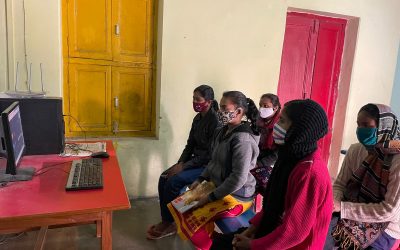
Your Mind Matters the Most – How to Keep it Well?
The WHO constitution states: “Health is a state of complete physical, mental and social well-being and not merely the absence of disease or infirmity.” An important implication of this definition is that mental health is more than just the absence of mental disorders or disabilities. It further states that mental health is a state of well-being in which an individual realises his or her own abilities, can cope with the normal stresses of life, can work productively and is able to make a contribution to his or her community.
In India, the WHO estimates that the age-adjusted suicide rate per 100 000 population is 21. 1. The economic loss due to mental health conditions, between 2012-2030, is estimated at USD 1.03 trillion.
Keeping these vital figures in mind, and the impact of the pandemic, mental health is a crucial subject not just in India, but globally. With the passage of time, more due attention has been paid to mental health thanks to growing awareness and engagement.
This blog deals with some basic ways (not exhaustive) of striking a healthy balance between mental health and the day-to-day chaos and strive
- Dedicate some time for the self. Do what you like to do in this slot. The important words being ‘what you like to do’ and not what you are expected to do. How much time to allocate? That depends on what you have to spare and what you need to, in order to rebound your energy. Start with small slots, if need be, and then graduate to more time.
- Learn to do nothing, for some time, to begin with. Just be in the moment, a part thereof, observing. This is an art, tough to master in this fast-paced life to which we have become slaves.
- Be kind to yourself. We have heard and read this umpteen time, yet leading by example is tough. You can only love others, if you begin with the self.
- Adopt the attitude of gratitude. During the day, note down mentally, or in writing, your blessings. They will be many.
- Empathy is a powerful emotion. Placing yourself in the other’s shoes helps in better understanding of behaviours, the way they pan out and sustain.
- Retrospection and introspection of the self results in better understanding of why the self reacts in ways it does, and how to combat negative reactions more effectively.
- Acceptance is important. If you accept who you are, and understand that a better version of your self is a matter of alignment of thoughts and actions, then the going is not tough.
- Talking and sharing are very important aspects of easing out the burden. Of course, the person at the other end, the time, place and other such are crucial, but talking and sharing are known to be great relievers of stress.
- Smile and laugh (of course, when appropriate 😊). Keep the energy light.
- Believe in the fact that everything is a phase, with a beginning and an end.
Of course, the above are just some of the many suggested ways. At the end of the day, it is the concerned individual who needs to gauge what works best for his/her health. Just like nutrition and exercise, among other things, is crucial for the body, emotional and mental health demand the same attention and care, just the ‘tools’ of achieving this are different.



